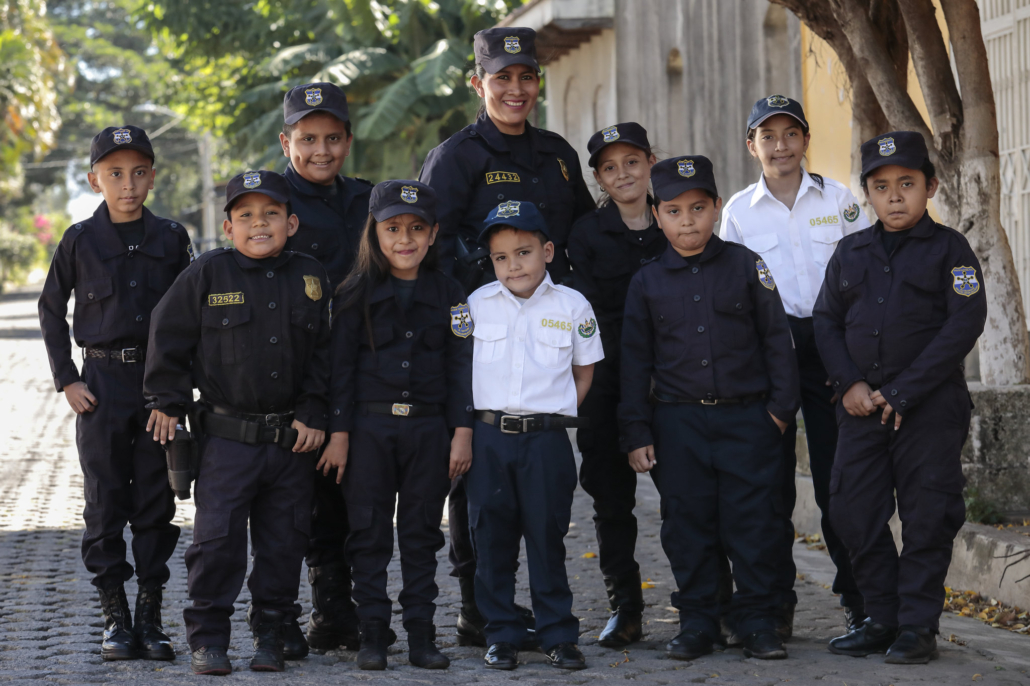Fragility and Rule of Law in El Salvador: Who Bears the Brunt?
 Political turbulence and social turmoil have significantly affected El Salvador’s rule of law and institutions. The country’s crime policy intersects with these challenges to reinforce social inequalities, undermining steps taken towards stability and democracy. Here is information about fragility and the rule of law in El Salvador.
Political turbulence and social turmoil have significantly affected El Salvador’s rule of law and institutions. The country’s crime policy intersects with these challenges to reinforce social inequalities, undermining steps taken towards stability and democracy. Here is information about fragility and the rule of law in El Salvador.
Fragility and the Rule of Law in El Salvador
Periods of political instability, including military rule, civil war and ongoing struggles for good governance mark the history of fragility and rule of law in El Salvador. At the centre of these issues lie the country’s governance structures, which demonstrate the centralization of power in the executive branch, leading to minimal checks and balances on the government. Therefore, for El Salvador, nullifying the division of powers has been essential for solidifying authoritarianism.
Consequently, according to the World Bank, governance indicators include: “Voice and Accountability; Political Stability and Absence of Violence/Terrorism; Government Effectiveness; Regulatory Quality; Rule of Law; Control of Corruption,” and in El Salvador, these issues have deteriorated. Regarding these issues, even though President Nayib Bukele took office in 2019 with a growth and anti-corruption agenda, the government with authoritarian tendencies revealed El Salvador’s deteriorating democratic prospects.
Corruption in El Salvador’s government also raises concerns about transparency, accountability and violations of civil liberties. Human rights organizations have revealed cases of arbitrary detentions, torture and other forms of mistreatment, Crisis Group reports.
Poverty, Institutional Fragility and Rule of Law
The poverty rate in El Salvador is one of the highest in Latin America, with 1.8 million Salvadorans living in poverty. Widespread poverty undermines social cohesion and contributes to institutional fragility. The lack of economic opportunities and social services increases the susceptibility of vulnerable communities to exploitation by criminal organizations.
Crime and Punishment
El Salvador faces a range of crime issues, from money laundering to drug trafficking, earning it the title of “the homicide capital of the world” in 2015. The country’s crime policy has historically focused on aggressive law enforcement measures – mano dura or iron-fist policies, which focus on crackdowns on gangs and increased policing.
Although El Salvador’s crime rate plummeted in the following years as the government responded with mano dura policies, there are concerns about the sustainability of the country’s policy response to violence and crime. Marginalized communities, including populations that poverty and violence disproportionately affect, bear the burden of these policies, facing increasing levels of police violence, arbitrary detentions and lack of due process.
The criminalization of poverty has further marginalized vulnerable populations, perpetuating cycles of social exclusion. Marginalized communities, not having access to economic opportunities and social services, often have no choice but to be involved in illicit activities. On that note, mass incarceration negatively impacts families due to parental separation as well as the impacts it generates on the youth such as social stigma, loss of financial support, poor academic performance, increased risk of abuse and increased delinquency. The cycle of poverty and violence leads to deteriorating socioeconomic outcomes, trapping individuals further within it.
Inclusive Policies and Social Justice
The case of fragility and rule of law in El Salvador framed within a discussion of crime policy presents broader problems of authoritarian populism, politics of terror and hegemony as well as the fragility of transitioning to democracy.
Nevertheless, El Salvador’s crime policy succeeded in reducing the crime rate in the country in the short term. Now it is time to focus on long-term solutions to the challenges presented by crime, poverty and social inequality, and in doing so, key priorities should include community-centered approaches, human rights protections, economic empowerment and social justice.
A prime example of this approach is the Youth Employability and Opportunities project which Plan International initiated in El Salvador in 2017. Through this project, young Salvadorans have seen improvements in their socio-economic conditions, with enhanced skills and economic empowerment leading to employment and self-employment opportunities. By generating job opportunities and improving the social fabric, the initiative took successful steps to break the link between youth involvement in crime and socioeconomic disparities in El Salvador.
Human Rights
Following the success of initiatives such as the Youth Employment Solutions project, it is vital to consider the broader framework within which human rights and socio-economic development intersect in El Salvador. One important entity actively involved in addressing these issues is the Inter-American Commission on Human Rights (IACHR), which is crucial in protecting human rights across the Americas. Recently, The IACHR has been making progress in regard to human rights practices in El Salvador. Specifically, the IACHR has focused on the state of emergency declared in the country in March 2022 to combat gang violence, conducting fact-finding missions while also releasing reports that revealed urgent issues such as the removal of constitutional rights and rising cases of arbitrary arrests. Additionally, the commission advocates for vulnerable groups and civil society, urging the government to protect judicial independence and transparent governance in order to protect civil liberties.
– Ilgın Özkul
Ilgın is based in London, UK and focuses on Politics for The Borgen Project.
Photo: Flickr
